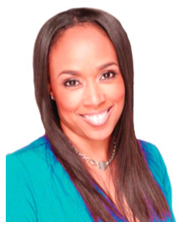
What to Look for When Hiring a Business Coach
Business coaching is now so popular for big and small companies alike that many business coaching firms have sprouted up offering their expertise. Once considered a luxury that only corporate executives from big companies could afford, the business coaching industry in the United States now totals 37, 000 firms based on IBISWorld research.
Business coaching is not cheap so it will be beneficial for your company to choose one that is qualified and the right fit for your expectations. With thousands of firms to choose from, it will be tough to assess every one of them.
But do you know what to look for when hiring a business coach?
When hunting for a business coach, one should consider the following factors:
Success Rate
It is important that you know the success rate of the business coach by asking about his/her previous clients and how did they help them achieved their objectives. You should also ask how much they earned coaching executives and employees. This is your way of determining if the potential coach really knows anything about business development if he/she was able to earn that much.
A coach from a barely surviving firm is someone that you should avoid hiring because the instability shows they were not able to address problems within their own firm. How can they resolve yours?
Length of Experience
Avoid first-timers. Never let other people practice on your company. Look for a minimum of three years of experience when hiring a business coach – which is long enough for them to build on their reputation and skills. This is to ensure that he or she has encountered a wide range of problems and issues that a company faces in the course of three years and gained knowledge from every standard coaching mistake encountered along the way.
Credible References
You will be entrusting yourself and your company to the hands of a business coach thus, a thorough background check should be conducted. Your business coach prospect should be able to convince previous clients to call you to serve as references for their success in achieving results for their own companies. You should also check the authenticity of these companies by Googling their information and calling them back at their offices for further questions. At least three credible references would be fair enough to establish.
Framework for Coaching
A good coach follows an effective system of coaching. They can present it to you during the interview. Avoid business coach applicants who have no clear framework of how they go about coaching because they are not good for you.
Advanced Learning
You don’t want somebody to teach you obsolete techniques, right? So look for a business coach who has the drive for continuous learning and is up to speed on technology. Do not base your judgment on what school they graduated from but rather how they were able to continue educating themselves to keep their knowledge base up-to-date. This is to ensure that they can give you the guidance that your company needs.
Source Link: http://success.com/article/how-to-hire-a-business-coach

